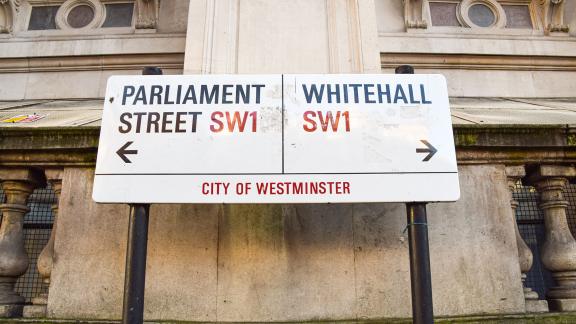Why this Easter’s doctors strike must be averted at all costs

The threatened joint doctors strike will endanger patients and be a hammer blow to the NHS’s attempts to tackle treatment backlogs. Yet neither side seems willing to compromise and the public may not fully understand what is about to happen.
Junior doctors are essential to the day-to-day running of the NHS. Indeed the term 'junior' is in many cases a misnomer given many of these vital staff members have already accrued a decade or more experience on the health service frontline and play a key role in the care patients receive across the system. Most often when a patient has contact with a hospital doctor, it’s a junior they will see.
So the news that pay talks between representatives from the British Medical Association’s junior doctors committee (JDC) and Steve Barclay, the health and social care secretary, had broken down last week, followed by the subsequent announcement from the JDC of a further four days of consecutive walkouts in April following hot on the heels of three days action in mid-March, has left NHS leaders dismayed.
Impact of industrial action
Some 300,000 patient operations and appointments have already been cancelled thanks to the cumulative impact of industrial action across the NHS since December, with more than half of these halted because of the 72-hour industrial action by junior doctors. A conservative estimate of the impact of the planned four-day action after Easter is that it will add a further quarter of a million cancellations.
Easter might mean chocolate eggs and DIY for some, but two bank holidays and a weekend sandwiched in between means that the NHS is always under greater pressure. The service is traditionally very busy, but it is also a time when many nurses, doctors and other vital NHS staff, like the rest of the nation, take much-needed leave to rest, reset and spend time with loved ones. Even without a strike, hospitals generally scale back on non-urgent services and cut down on the number of elective operations carried out.
While the NHS has coped with the strike action so far, this time will be different
This time though, the strike is unfolding against a background of an NHS workforce now carrying over 124,000 vacancies and dire warnings this figure will approach half a million without a significant boost in how staff are trained, retained and recruited. Like other NHS workers, the junior doctors are not just angry about pay. Many report burnout and recent BMA research suggests four in ten NHS doctors are planning to quit the service. Yet, we still await an NHS workforce plan.
While the NHS has coped with the strike action so far, this time will be different. Firstly, unlike the nurses’ action, there are no derogations to enable staff to address urgent or emergency care. This means trusts have to rely on consultants to fill the gaps, but over Easter many consultants too will be on long-planned holidays.
Secondly, many consultants taking on extra shifts expect to be paid the rate specified by the BMA, which is putting strain on already overstretched budgets. Lastly, leaders report that there was little change in patient demand during the last junior doctors strike. One leader told me of a patient who came to A&E and explicitly said he had done so on a day 'when the consultants will be on.'
NHS leaders pride themselves on their capacity to manage crises, but these leaders are warning now that patient safety and dignity will almost certainly be compromised
Another NHS trust chief executive confided that they were facing a 'catastrophic risk' with the escalated strike action with the knock-on impact felt over 11 days due to reduced staff cover over the Easter weekend and during the weekend after the strike.
NHS leaders pride themselves on their capacity to manage crises, but these leaders are warning now that patient safety and dignity will almost certainly be compromised.
The crisis must be averted
They also fear these strikes will deal a big blow to the efforts of NHS leaders and their staff to tackle the 7.2 million waiting list backlog. The push to drive down the number of people awaiting treatment, including the last leg in the battle to ensure no more people are waiting more than 18 months by April, is being put in jeopardy.
Leaders know well that choosing to strike is not a decision taken lightly. But the potential damage this action could bring means something must be done urgently to avert it.
If both sides refuse to budge, we will end up in a dangerous war of attrition that does no one any favours, least of all patients. Both sides must now genuinely do all they can to find a way through this impasse and restart pay talks.
This article was first published in the Times Red Box on 30 March 2023.
Matthew Taylor is chief executive of the NHS Confederation. You can follow Matthew on Twitter @FRSAMatthew.



